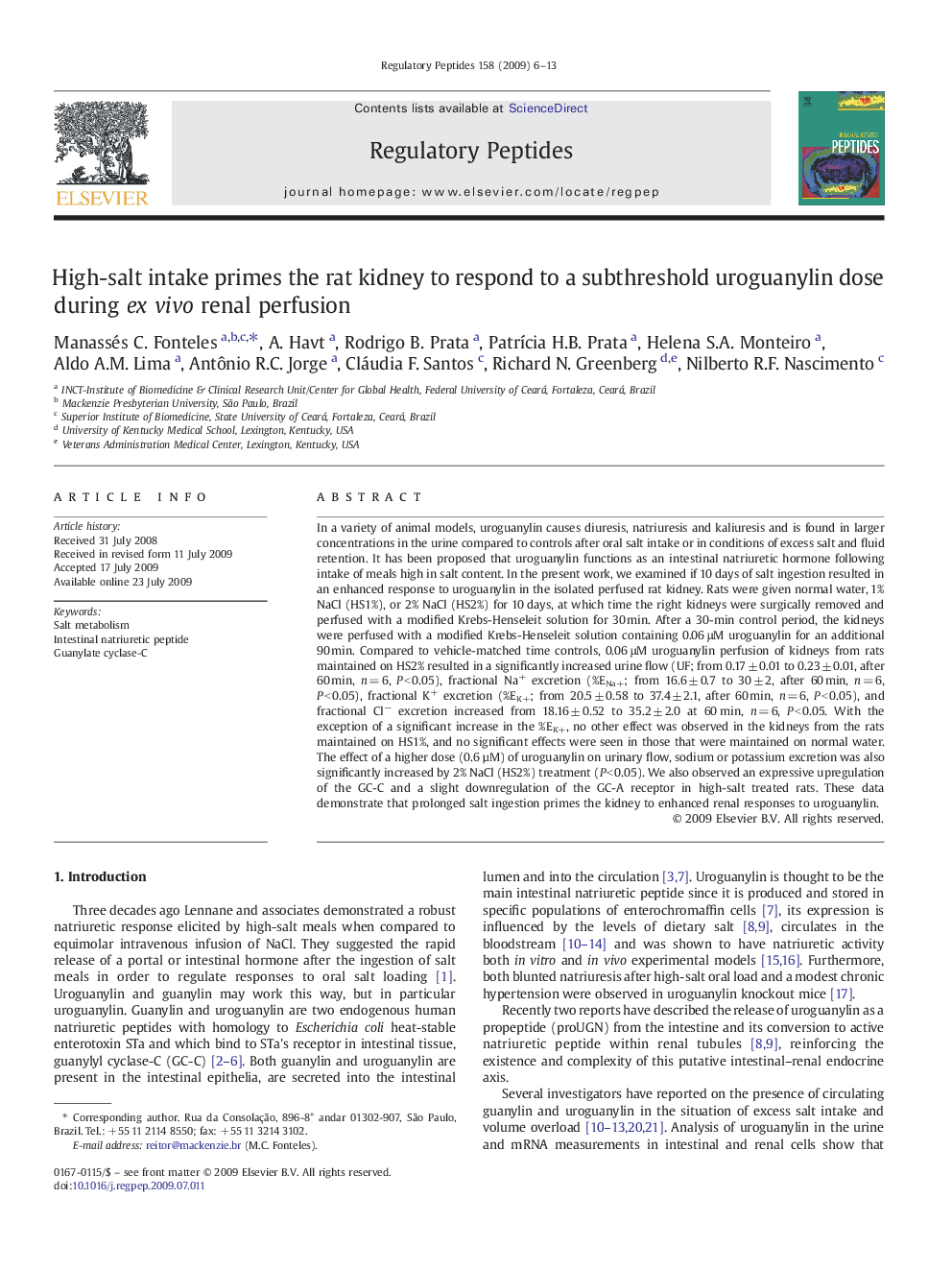| Article ID | Journal | Published Year | Pages | File Type |
|---|---|---|---|---|
| 2022938 | Regulatory Peptides | 2009 | 8 Pages |
In a variety of animal models, uroguanylin causes diuresis, natriuresis and kaliuresis and is found in larger concentrations in the urine compared to controls after oral salt intake or in conditions of excess salt and fluid retention. It has been proposed that uroguanylin functions as an intestinal natriuretic hormone following intake of meals high in salt content. In the present work, we examined if 10 days of salt ingestion resulted in an enhanced response to uroguanylin in the isolated perfused rat kidney. Rats were given normal water, 1% NaCl (HS1%), or 2% NaCl (HS2%) for 10 days, at which time the right kidneys were surgically removed and perfused with a modified Krebs-Henseleit solution for 30 min. After a 30-min control period, the kidneys were perfused with a modified Krebs-Henseleit solution containing 0.06 μM uroguanylin for an additional 90 min. Compared to vehicle-matched time controls, 0.06 μM uroguanylin perfusion of kidneys from rats maintained on HS2% resulted in a significantly increased urine flow (UF; from 0.17 ± 0.01 to 0.23 ± 0.01, after 60 min, n = 6, P < 0.05), fractional Na+ excretion (%ENa+; from 16.6 ± 0.7 to 30 ± 2, after 60 min, n = 6, P < 0.05), fractional K+ excretion (%EK+; from 20.5 ± 0.58 to 37.4 ± 2.1, after 60 min, n = 6, P < 0.05), and fractional Cl− excretion increased from 18.16 ± 0.52 to 35.2 ± 2.0 at 60 min, n = 6, P < 0.05. With the exception of a significant increase in the %EK+, no other effect was observed in the kidneys from the rats maintained on HS1%, and no significant effects were seen in those that were maintained on normal water. The effect of a higher dose (0.6 µM) of uroguanylin on urinary flow, sodium or potassium excretion was also significantly increased by 2% NaCl (HS2%) treatment (P < 0.05). We also observed an expressive upregulation of the GC-C and a slight downregulation of the GC-A receptor in high-salt treated rats. These data demonstrate that prolonged salt ingestion primes the kidney to enhanced renal responses to uroguanylin.
